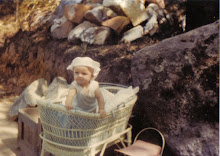 I came to Celtic mythology by way of research into the validity of the Arthurian legend & I came to Arthur via fairy tales so this has been a lifelong obsession.
I came to Celtic mythology by way of research into the validity of the Arthurian legend & I came to Arthur via fairy tales so this has been a lifelong obsession.Central to the Arthurian tales is the story of Merlin but one doesn't have to read very far to realise that in Celtic mythology the real power is held by women. Oh the warriors strut their stuff & the bards prate about bravery but it is the women who drive the story lines. Men forsake honour for them (Deidre), fall helplessly in love with them (Grainne), are trained by them (Scatha), terrified by them, (Morrigu), or are simply at the mercy of her whims as the Cailleach, the washer woman at the well, or any of the dozens of denizens who inhabit the half world of the sidhe. Ganeida is another of them. Her name means morning star so is associated with Venus & with the guardian of the doorways of time & culture. She was the (twin?) sister of Merlin, was ban file in her own right & poems under her name have come down the centuries to us. No, I haven't been able to turn one up as 1/2 my books seem to be missing.
Now odd as it might seem given my topic matter & the content of this blog, when it comes to history I actually prefer reality when I can get it. In my digging round into obscure matters I came upon the druids. NOT, I hasten to add, the modern sort in their funny white sheets prancing round ancient sites doing peculiar things & while I'm sure their spiritual ancestors did equally peculiar things I have no interest in that at all. No, I refer to the Aos Dana, the people of art.
There were 3 main branches of druids ~ seers (we won't go there, very yucky), the brehons (lawyers) & the file (poets). As a poet no prizes for guessing what attracted me. Again, this was, for the most part, not poetry as we understand poetry. The poet's role was more that of historian; to record & preserve the language, history, genealogy & heraldry of a people. They were the intellectual classes, a role passed down through families. They studied for 20 or more years & were usually better educated than the kings they served. Their role was perhaps more along the lines of a noted journalist with their own column to chronicle & comment upon the events of the day, satirise the culture, sway public opinion. They held untold amounts of power.
The Gaelic peoples have a long & rich history of intellectual passion, setting up schools for the training of their elite as far back as memory goes. No wonder that, in the end, the bards were way out of control, thrice being banished in Ireland for demanding things like even the king's crown. Arrogant. They existed & trained their young long before Christianity arrived & when it did there was no real shift in power. The druids, who had a quite liberal theological viewpoint, embraced the new religion, wedded it to the old & the Culdees were the result.
So when I come to my Celtic past I rest (in the best Celtic tradition) upon the threefold heritage of history, mythology & literature that has amused & tantalised my small mind for most of my life. It is a rich tradition that has contributed more to our modern world than most people know. If it wasn't for the Irish & that strange Celtic obsession with evangelizing much of European civilisation & intellectualism would have been lost ~ but that is another topic entirely.










5 comments:
Bear with the sarcasm here...
Oh, Thank you SOOO much for posting that! I really needed a new excuse to not wash dishes!!!
But really, I arrived pretty much the same way, I just didn't pursue it as far as you did. I'd love to just let everything slide for awhile and immerse myself in this fascinating subject.
I really need to figure out the whole "unit study" idea... Maybe we could do a project and even go visit Iona. That would be very cool.
Iona would be very cool indeed but there are plenty of Arthutian sites: Tintagel (his suppossed birthplace), wild & desolate on the very tip of the Cornish peninusular; Cader Idris in Wales; the Lake country that was part of Reghed: the Orkneys where Lot & his sons perched like ravenous eagles...And then there's the British museum which holds so many artifacts from this time period (including harp keys to tune the wretched things [some things never change]); The Edingburg museum has one of the oldest British harps in existence; chessmen carved from whale bone (these are gorgeous!)...you really shouldn't get me started. This is a fascinating period & though they still call it the Dark Ages we know so much & all of it is fascinating.
Thank you for sharing all that rich history. Very interesting!
Blessings,
Gina
Tintagel is on my list, too.
Just Iona for the Christian history. I enjoyed reading a fictionalized account of St Collumcille (Columba), and then there's the music group Iona, etc.
Wow! I wish I had time to read!
Tintagel really is out of period lol but *something* was there long before the castle remains. The narrow causeway is the same & the rocks in the sea & the pounding surf, screaming gulls.... Atmospheric. Just *round the corner*, so to speak there, is an open air ampetheatre built clinging to the cliff & overlooking the sea. That was something else!
Post a Comment